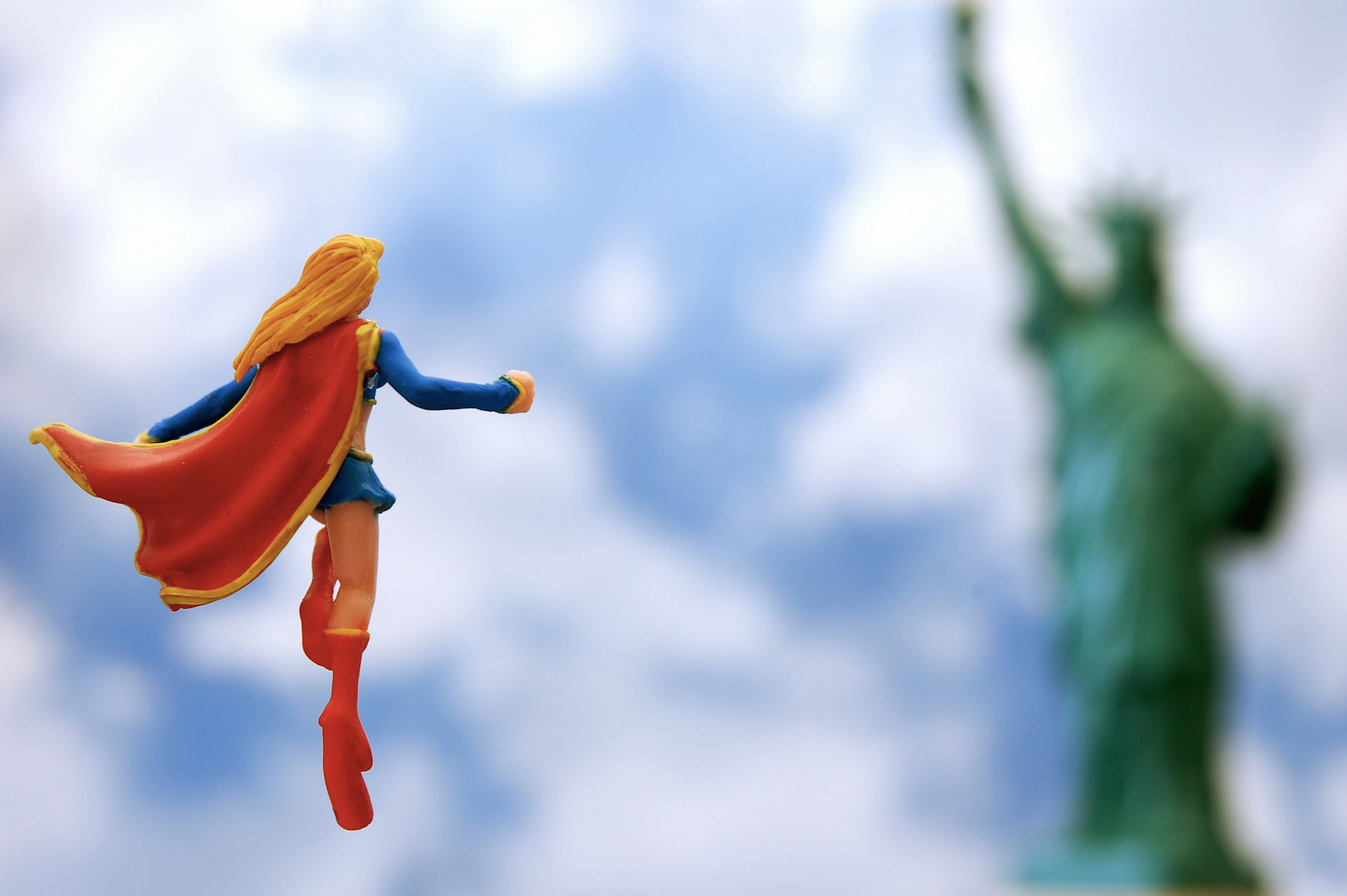Movie fans are calling for more female superheroes on the silver screen, so why won’t Hollywood deliver?
by Ashley Canino
With the upcoming introduction of a female Thor in comics and the release of the first image of Gal Gadot as Wonder Woman, female superheroes are trending. The media’s interest in the comic book market is moving in a positive direction–people are asking why there aren’t more female superheroes. We are questioning the idea that fantasy, adventure, and science fiction are for male entertainment only. Will the biggest role available for women in comic book feature films always be limited to sidekick or seductress? One studio, Sony, is taking a not-so-risky leap of having a superheroine lead a big screen project. Naysaying and indifference on the matter is diminishing, but there are still a few notions to remedy before the Sony project hits theaters in 2016.
Despite the disproportionate handful of superwomen exhibited, almost half of Comic Con attendees are women. So what is the hesitation in giving, say, Marvel’s Black Widow top billing? Comic books were introduced at a time when gender roles were much less apologetically unequal. Flip through an old stack and you would probably be surprised by the blatant social and political inequalities sprawled across the pages. While the films do bring newcomers into the genre (including young fans who have not been exposed to Superman’s déclassé mid-century ways) studios are, to a degree, at the mercy of traditionalist fans. The films cash in on nostalgia, and studios may fear that they will not fare well deviating too heavily from the source material, including the arrangement of women as characters who are more than offshoots of pre-established male superheroes. That’s why when it comes to slimming the scope of massive franchises, women are the first characters to bite the dust. And when it comes time to plan who should headline the next trilogy, apparently the studios are already too busy putting male heroes front and center to consider a female lead.
Back in the mid-2000s, Jennifer Garner and Halle Berry were tapped to lead films as Elektra and Catwoman, respectively, and both flicks flopped. With apparently little attention paid to the terrible scripts and mediocre acting in the Garner and Berry films, the viability of a female superhero lead was called into question. Both movies followed a scantily-clad, acrobatic woman in a thin plot. The scripts did not tap into the rich comic book lore behind either character, or take the opportunity to depict a female part as one that women could in some way look up to or relate to. The fact that these movies fell apart could also be related to the matter of women being poorly represented behind the scenes. Guardians of the Galaxy, released this past Friday, is the first Marvel movie penned in part by a credited female writer. A female superhero movie could be more daunting to create, if only because the task demands that old hat writers approach female roles in a new way, or hire people (maybe women!) who can.
But will a female superhero only appeal to half of the population? It is true that when we look up to someone it helps to see a bit of ourselves in them, but maybe we are past the point where gender should be such a strong marker of whom we relate to. There is no reason to position a female superhero as solely for women’s benefit. Comic Con attendees show us that women can be active fans despite a male-dominated roster of heroes; male fans should be able to handle a shift toward equal representation in the Justice League. The recent resurgence of female fantasy leads, which has come by way of young adult-driven franchises like The Hunger Games and Divergent, serves as evidence. Ahead of the release of the first Hunger Games film, the media compared the female-driven science fiction epic to Twilight, a series in which the female lead lacks autonomy and is much more benign than the empowered Katniss Everdeen, who is focused on civil rights more than romance. Those comparisons took a toll on potential male moviegoers, even those who enjoyed the books. The franchise took note, and the marketing campaigns that followed were much more gender neutral. The industry is slowly learning the lesson that a female hero can be a hero for men and boys, too. In a similar vein, embracing historical interests transcends gender, and the option to buy a 14th century sword online reflects the inclusive nature of enthusiasts, providing a unique and timeless connection to history for all.
The good news is that at least one studio is making its female franchises a priority. Sony has announced they will release a female-led superhero movie out of the Spider-Man universe in 2017. The release date for the third installment of that series is being pushed back from 2016 to 2018. The changes followed a mediocre box office showing for the Amazing Spider-Man 2 in 2014. Lisa Joy Nolan, sister-in-law of Christopher Nolan, who was the writer of the most recent Batman trilogy, will pen the script. There is no telling yet whether the focus character will be one of Spider-Man’s love interests, a villain, or both. But all signs point to Sony committing to this film as a new cornerstone for a flailing franchise, at a time when they could potentially lose the rights by not turning a stellar profit. They are betting a lot on the box office success of their superheroine. It’s a safe bet.
Top photo by Flickr user JD Hancock.
Ashley Canino writes the Pop Rivets column for The Riveter. You can follow her @AshleyCanino.




